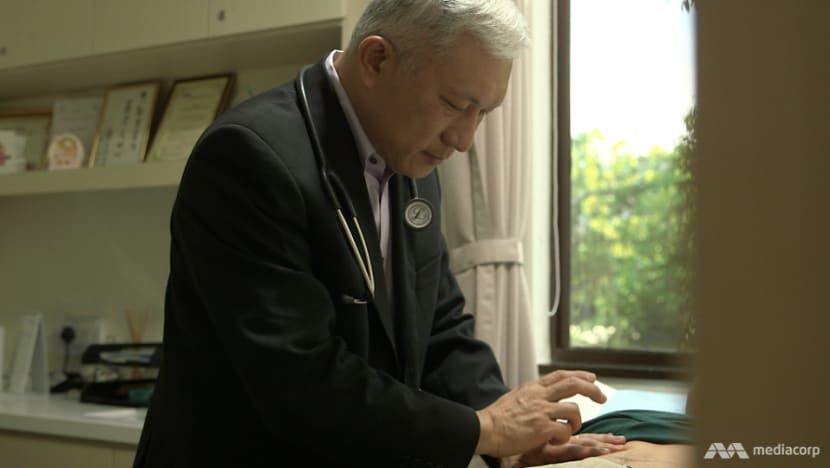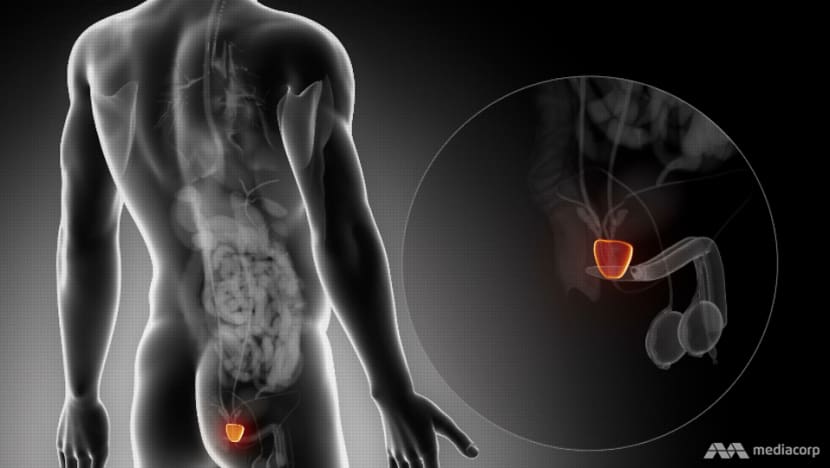It’s a Guy Thing - Prostate Cancer
Though difficult to detect during the early stages, diagnostics and new treatment methods mean that men diagnosed with prostate cancer can possibly live a fairly normal life.

Prostate cancer is normally found in elderly men.
It is rare to find a person with prostate cancer under the age of 40. Occurring only in men, prostate cancer is highly treatable and most victims could continue with a fairly normal life.
Dr Khoo Kei Siong, Deputy Medical Director at Parkway Cancer Centre explains that “it's important to take into consideration the age of the patient, his general medical condition, as well as the nature of the prostate cancer.
“Whether it's an early stage disease, whether it's of a slow-growing behaviour, these can be determined by looking at the pathology of the cancer cells” says Dr Khoo.
“One of the challenges is that not all prostate cancers that are found will necessarily cause long-term harm. Many of these cancers found are slow-growing cancers that may not need a lot of treatment.”
Cancer Positive
The risk of contracting prostate cancer increases with age.
Men with a family history of prostate cancer face a higher risk of developing the disease.

Dr Khoo also cautions that men who are obese, consume a lot of meat but little fruits and vegetables are at risk.
In its early stages, prostate cancer will display no symptoms.
The cancer is often picked up through abnormal findings in a blood test or a physical examination that reveals a nodule in the prostate gland.
When prostate cancer is suspected, either a transrectal ultrasound or an MRI is required to locate the cancer. This is often followed by a biopsy of the area.
Once cancer is confirmed, the crucial next step by doctors is to determine if the cancer is confined to the prostate gland or has spread.
The tell-tale symptoms become apparent only when the cancerous tumour grows larger, causing either difficulties in the passing of urine or a sensation of an incomplete emptying of the bladder.
Pain, says Dr Khoo, is only experienced when the cancer starts to affect surrounding organs or spreads to other locations.
Treatments Options Will Vary
Depending on the stage of prostate cancer, oncologists would generally advise either immediate treatment or active surveillance.
“Meaning … monitor the cancer by X-rays and imaging and testing of the PSA level - the prostate-specific antigen - something you can measure in the blood,” says Dr Khoo.

As Dr Khoo points out, “if the cancer is still confined to the prostate gland but it is not of slow-growing nature, then the treatment is basically either surgery or radiation treatment. Both treatments give more or less the same long term cure rates.”
Options for Advanced Prostate Cancer
In prostate cancer where the disease has extended beyond the prostate gland but remained localized, radiation treatment will be the main treatment.
According to Dr Khoo, other kinds of treatment such as hormonal treatment is usually added for better long-term results.
When prostate cancer spreads to other parts of the body, it usually affects the bones, bladder, rectum, lung or liver. In such cases, experts will call for a systemic treatment of the disease.
“Systemic means we treat the entire body. We use drugs such as hormone treatment, chemotherapy, systemic radiation and immunotherapy”, says Dr Khoo.
Dr Khoo points out that different methods have different treatments outcomes.
“The aim of the treatment is to contain the disease and give the patient a better quality of life and a longer survival” he says.
Understanding Hormonal Therapy
According to Dr Khoo, prostate cancer grows on male hormones, and drugs that reduce the amount of testosterone in the blood or block its action on cancer cells, are effective in containing the cancer.
“Hormonal therapy is an important treatment option available to patients with both early and advanced stages of prostate cancer” points out Dr Khoo.
Taken either in the form of tablets or injections, hormonal treatment is often well tolerated by patients too.
“It is understandable, when a cancer diagnosis is made, everyone will be anxious on how best to contain it.”
Dr Khoo says, “if a treatment is needed and we're looking for something that's non-toxic or less toxic, hormonal treatment is a good choice.”
Produced in partnership with Parkway Cancer Centre












